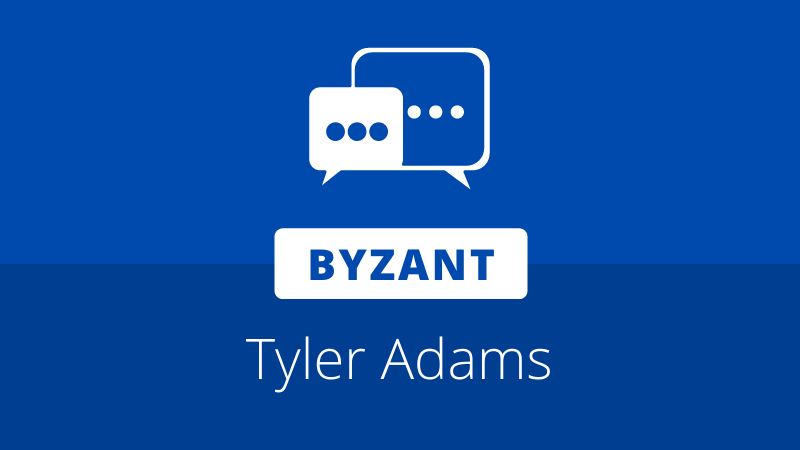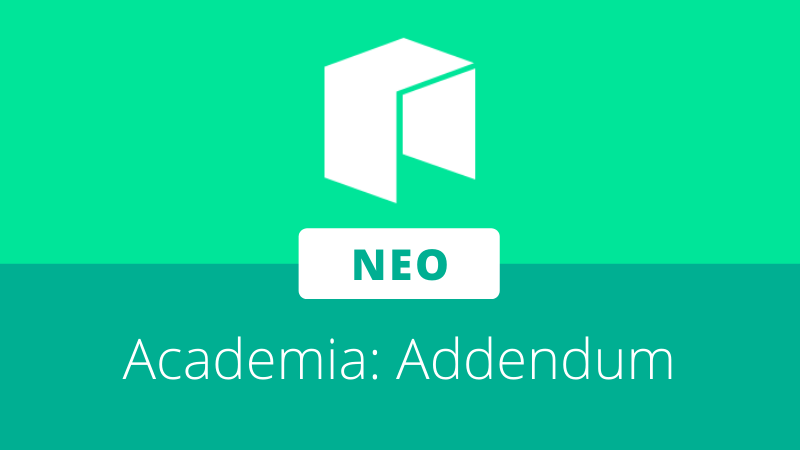
Byzant is a new series by Neo News Today, providing access to insider perspectives from knowledgeable individuals in the Neo ecosystem and broader blockchain industry. For the following week after a guest has shared their insight, they will be encouraged to participate in discussion on the Neo subreddit by answering relevant questions from the community.
For our first feature, we asked COZ and Moonlight co-founder Tyler Adams to introduce the role and importance of decentralized digital identity solutions. As a co-founder of COZ and author of the NEP-5 token standard, Tyler has been a prominent figure in the Neo ecosystem since it first began to establish a presence in the West. Tyler also co-founded Moonlight, a platform seeking to resolve trust issues and friction in the workforce recruitment space, which produced Vivid ID, a self-sovereign identity solution.
You’re invited to join the conversation and take advantage of Tyler’s knowledge by asking him questions about digital identity and all things blockchain on Reddit below:
Why is digital identity critical and how is it useful? What does the ecosystem around digital identity look like and how does it expand outside of blockchain?
We take identity for granted because it’s largely handled for us:
- When you go to a new hospital, your medical records are transferred between institutions.
- When you apply for a job, the employer or recruiter requests records from third parties like a university or previous employer.
- When you apply for a loan, the bank coordinates a check with credit rating bureaus.
The modern world revolves around the exchange of your personal information, but if I asked you to verify any of the information required for the processes above without requesting permission from a third party, you wouldn’t get very far. In most cases, you’re never issued a verifiable copy of your qualifications, certifications, or holistic identity at all.
When transitioning from the physical world to the digital one, the issue becomes even more pronounced because the remote nature makes it impossible to conduct a formal (physical) verification and authorization activity. Digital verification workflows (specifically state-issued identity) have made some pretty remarkable advances in the past 5 years, but they are still encumbering for end-users and cost prohibitive for product integrators. Until these issues are resolved, digital analogs to many of our physical systems will remain infeasible.
Within the blockchain space, we’re all familiar with the KYC workflows presented within exchanges, but need to acknowledge the redundancy of executing this workflow every time we use a new platform. It’s tedious, expensive, and bleeds your personal information in an excessively high resolution every time you register for something. I’m not a fan of HD images of my passport being shared amongst the global community (If you don’t believe this is happening en masse…LOL). At the same time, there is a clear need for verified user information from both a compliance and user experience perspective for many different products, so we acknowledge the need for non-custodial, scoped access solutions, but integrate what’s available due to the lack of viable digital identity solutions in the market. These pains aren’t unique to exchanges and extend to nearly every facet of user verification and personal data provisioning from state-issued identity to professional experience.
The blockchain space is maturing and we are running into some major roadblocks associated with key anonymity/reputation. As a toy example, any form of decentralized leadership mechanics are severely limited without a way to build reputation against the entity in the leadership position. Without that critical infrastructure, a bad actor can simply generate a new key-pair and start over with a clean slate. For some applications, this is a great feature, but can be crippling for a lot of others. Currently, this is countered with either an ad-hoc SSI (Self-Sovereign Identity) solution that the app developers implement or some derivative key-pair information like their transaction history.
DSSI (Decentralized Self-Sovereign Identity) attempts to solve these problems for dApps and blockchain core protocols, but I believe the larger benefit (and market) is outside of the tiny blockchain bubble. By implementing a clean, unified verification experience for users of DSSI, we can drive massive adoption of blockchain as a technology through identity as a use case.
From a market perspective, the user base for identity verification is far greater than the explicit blockchain space and ranges from buying a beer to applying for security clearance. The goal of those in the identity space is to improve many of those experiences while also converting them into viable blockchain use cases. As this space matures, the areas that drive adoption will be the ones which provide a product where blockchain is a tool, not a business case. I look forward to the day when I can broadly issue verification of my own personal data without sending a request to an intermediary authority.
– Tyler Adams







About The Author: Brett Rhodes
Brett is a blockchain enthusiast and freelance writer who originally began producing content for the gaming & eSports industries. Now he spends most of his time contributing in the Neo ecosystem.
More posts by Brett Rhodes